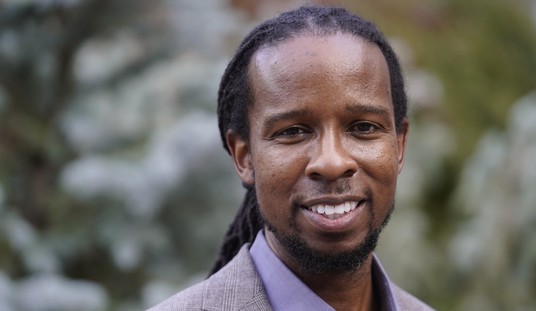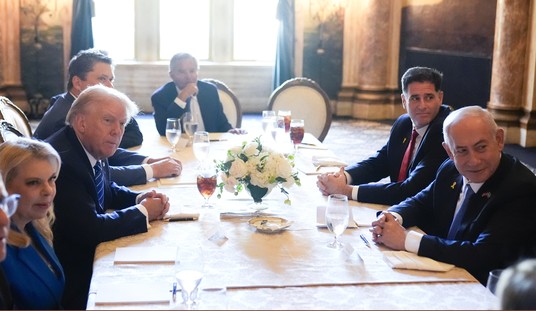He’s still testifying as I write this, and of course everything the media has is due to selective leaks, so take all of it with a grain of salt. But given Tim Morrison’s importance as a witness, it’s a cinch we’ll be hearing him testify ourselves at a public hearing soon.
There’s some good news for the White House in what he’s said today. Alexander Vindman listened in during Trump’s call with Ukraine’s president on July 25 and found Trump’s interest in investigating the Bidens so alarming that he went to speak to a White House lawyer about it. But Morrison listened in on the call too. And he didn’t hear anything inappropriate.
And, contra Vindman, Morrison doesn’t remember anything pertinent from the conversation being left out of the “transcript” that the White House released afterward.
Morrison also testified that the memorandum of the call released by the White House is accurate to his recollection and he does not know the WB's identity. Story soon.
— Arden Farhi (@ArdenFarhi) October 31, 2019
“Mr. Morrison’s testimony was very damaging to the Democrats’ narrative,” said Mark Meadows afterward. All of that is useful to Trump in the PR war to come, as the more firsthand witnesses there are to the call who testify that they heard nothing wrong with the conversation, the more cover Senate Republicans will have to acquit the president. House Democrats will counter, though, that what Morrison — and Vindman — heard on the call is interesting but ultimately irrelevant. The transcript itself is sufficient proof of a quid pro quo to justify impeachment, they allege. If Morrison saw no problem with Trump bringing up the Bidens in a conversation about cooperation between the White House and Zelensky, that’s evidence of a flaw in Morrison’s judgment, not of a flaw in the case against Trump.
The call wasn’t the only subject that Morrison addressed either. The big question surrounding his testimony this morning was whether he would corroborate Bill Taylor’s testimony last week about whether a quid pro quo involving U.S. military aid to Ukraine appeared to be in the works. Gordon Sondland testified that he had no idea of any such thing; Taylor, however, claimed that Morrison told him that Sondland had said otherwise privately. Read Philip Klein for a useful (if lengthy) point-by-point comparison between Sondland’s account of what happened and Taylor’s secondhand account of what happened. Today it was time for Morrison, who interacted with Sondland, to settle the issue. Who’s lying, Sondland or Taylor?
Morrison told impeachment investigators that the account offered by William B. Taylor Jr., the acting ambassador to Ukraine, is accurate. He said that he alerted Taylor to a push by Trump and his deputies to withhold both security aid and a White House visit for the Ukrainian president until Ukraine agreed to investigate the Bidens and interference in the 2016 presidential election, said one person, who like others spoke on the condition of anonymity to describe sensitive discussions…
Morrison corroborated that he spoke with Taylor at least twice in early September. The first conversation was to alert him that Gordon Sondland, the U.S. ambassador to the European Union, had told the Ukrainians that no U.S. aid would be forthcoming until they announced an investigation of Burisma, a Ukrainian energy company that had hired Biden’s son Hunter, a person familiar with the matter said.
Morrison also told lawmakers that he spoke with Taylor again on Sept. 7 to share a “sinking feeling” about a worrisome conversation between Trump and Sondland, the person said. Morrison said that, during that conversation, Trump said he wasn’t seeking a “quid pro quo” but went on to insist that Ukrainian President Volodymr Zelensky had to publicly announce that he was opening investigations of Biden and 2016 election interference.
Of note: Morrison also reportedly said that he “did not necessarily view the president’s demands as improper or illegal, but rather problematic for U.S. policy in supporting an ally in the region,” in WaPo’s words. Again, that’s useful to Trump in creating room for doubt about the impropriety of all this in voters’ minds: If even a foreign policy expert like Morrison wasn’t troubled by what he knew, why should anyone else be? But again, Democrats will counter that Morrison’s judgment isn’t important here, just his recollection of what happened. And in any case, his insistence that this was no big deal is contradicted by his admission of a “sinking feeling” about what Trump and Sondland were up to.
The key point is that Sondland’s credibility is now in serious doubt. As Klein notes, it was already in doubt: Sondland also testified, dubiously, that he didn’t make a connection between Burisma and the Bidens until much later in the Ukraine saga even though Rudy Giuliani had been giving interviews about it to the New York Times in May. Vindman reportedly testified yesterday that Sondland mentioned the Bidens in connection with Burisma in his meeting with two Ukrainian officials on July 10, after John Bolton had kicked the group out of his office for discussing such improper subjects. There’s every reason at this point to suspect that Sondland is covering up. And remember, while it’s helpful to Trump that Morrison seems to have had no problem with any of this, it sounds from the reporting like Bolton had a problem with it. If the former NSA testifies that this was improper, I’m not sure how much Morrison’s judgment matters.
One more point. Read Klein’s summary of Taylor’s testimony and you’ll find Taylor claiming repeatedly that Sondland wanted the Ukrainians to announce that the Burisma probe would be reopened. It wasn’t good enough to reopen it; it had to be publicly known. There was even talk of Zelensky doing an interview with CNN to formally alert the world that Hunter Biden’s company was on the hot seat in Ukraine. Supposedly Sondland told Taylor that Trump wanted Zelensky “in a public box” when it came to the Burisma and CrowdStrike probes. Why is that so interesting? Because it goes back to the question of Trump’s motive. The president insists that he was interested in the Bidens simply because he wanted to punish possible corruption by a high-ranking former U.S. official, a legitimate public interest. Critics counter that his actual motive was wanting to damage the frontrunner for the Democratic nomination, fearing that Biden stood a good chance to beat him next fall, an obvious abuse of official power. Which is the truth? Radley Balko made a sharp point about how to settle it:
One obvious giveaway that Trump had no interest in “corruption” is his demand that Zelensky announce the investigation publicly. When you want a real investigation, as opposed to a political weapon, you don’t give your target a public heads up.https://t.co/sPxLJGGHga
— Radley Balko (@radleybalko) October 30, 2019
Yeah, why would he risk letting the Bidens know that they were being investigated by having Zelensky announce it? That tip-off might give them a chance to destroy evidence or to get their stories straight before the probe could advance. Tipping off the subject of an investigation isn’t something you do if you’re interested in a conviction, it’s something you do if you’re interested in influencing public opinion. Which would suggest a personal/electoral motive for Trump, not an “anti-corruption” one.








Join the conversation as a VIP Member